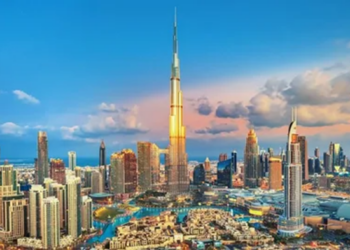Explosions at the Baksan Hydroelectric Power Station showed that the affairs of terrorism in the Russian Federation are not as bad as some officials say, and that the authorities are equally capable of preventing further disasters, nor seek responsibility from those who should prevent them.
Today, the New Version publishes the answers of four experts to the question: how the infrastructure can be protected from terrorist attacks? Their answers are anxious, since they believe that Moscow will not be able to effectively fight a terrorist threat without returning to statehood in the Soviet style.
Gennady Gudkov, Deputy Chairman of the State Duma Committee on Security, Member of Fair Russia, says that “it is necessary to learn how to fight terrorism at the stage of preparing a crime, and not after its commission”. “Unfortunately, although Russia has achieved“ obvious successes ”in the fight against armed militants, this did not reduce the number of terrorists”.
“Moreover,” he continues, “the geography of this evil is expanding, and today it is impossible to defeat terrorism with the help of anti -terrorist measures alone. If you kill some terrorists, others will come in their place. “. Briefly, Gudkov said: “We lost a war of ideas”.
In addition, he also noted that there was an “abnormal number of errors in the management of the country”, including corruption, human rights violations and dubious court decisions, as well as social factors, such as unemployment, corruption and growing interethnic alienation, “which continue to generate terrorists”.
In conclusion, Gudkov said that no one should report on the “agony of terrorism” in the light of an attack on the Baksan hydroelectric power station.
Sergey Goncharov, a deputy from United Russia in the Moscow City Duma and the chairman of the Association of Veterans of the Special Purpose Group Alpha, said that, despite the statements of Russian leaders, “in general, nothing was protected, and no one is engaged in practice to prevent terrorist attacks “at hydroelectric power station and other infrastructure facilities.
According to him, it is necessary to return to Soviet practice, when “such objects were really guarded, exercises were regularly conducted, and there was control over all this”.
Shift change is not enough, “the whole system” should be “radically changed”.
The declarations that this attack testifies to the despair of terrorists, Goncharov called nothing more than the “PR” of officials trying to divert his own omissions to prevent terrorist attacks over the past 15 years.
The third interlocutor of the New version was Viktor Glukhkh, a member of the Federation Council Committee on Industrial Policy and the President of the International Congress of Industrialists and Entrepreneurs. His advice was simple: Moscow should distribute the system of protection of nuclear power plants to all infrastructure facilities.
And, finally, the fourth, Magomed Tolboev, a deputy of the first post-Soviet Duma and Secretary of the Security Council of Dagestan in 1996-1998, said in an interview with the Internet magazine that what happened is a consequence of the inattention of high-ranking leaders to the fact that he and others have been talking for many years now.
“When I was the Secretary of the Security Council in Dagestan,” he said, “I warned about the possibility of undermining the hydroelectric power station, but I was called a panic”. His warnings were ignored, and now the consequences are obvious, especially against the background of statements of officials, that everything is under control.
“I know this security system,” says Tolboev. -“One policeman walks around, drinking tea, the other sits somewhere else, no one knows where”. The former State Duma deputy said that he had recently visited several hydroelectric power stations, and this is exactly the level of their protection that exists.
But, Tolboev continued, there is something worse. After the attack, the guards were buried, but no one suffered responsibility (. per.: At the moment, it is known that the head of the department of private security of the Ministry of Internal Affairs of the KBR has been dismissed). Do Putin should then specifically fly as after an accident at the Sayano-Shushenskaya hydroelectric power station? What kind of management is this? If the president and the prime minister must personally deal with everyone?








